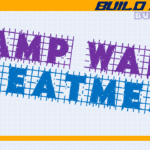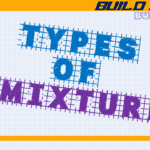Introduction to Contract Management Software
Contract management software has become an essential tool for organizations of all sizes, transforming the way contracts are created, managed, and executed. In an increasingly digital world, manual processes can no longer keep up with the complexities of modern contract management. From reducing risks to ensuring compliance and streamlining workflows, contract management software offers robust solutions that drive efficiency and accuracy. Whether you’re dealing with vendor agreements, client contracts, or internal policies, these tools provide the necessary features to manage your contract lifecycle from start to finish effectively. With various options available, it’s crucial to understand what each software offers to make the best choice for your organization.
Top 10 Contract Management Software Solutions
1. Procore
- Features: Comprehensive contract management, document control, and project tracking.
- Pricing: Starts at $375/month (billed annually).
- Target Users: General contractors, subcontractors, and project owners.
- Disadvantages: Steeper learning curve; can be expensive for small firms.
2. Autodesk Construction Cloud
- Features: Contract management, document management, and collaborative tools.
- Pricing: Custom pricing based on project size and features.
- Target Users: Large enterprises, construction firms, and design professionals.
- Disadvantages: Higher cost for advanced features; requires robust IT infrastructure.
3. Oracle Aconex
- Features: Contract administration, project controls, and document management.
- Pricing: Custom pricing based on project scale.
- Target Users: Large construction projects, infrastructure projects, global enterprises.
- Disadvantages: Complex setup and customization; premium pricing.
4. Viewpoint Vista
- Features: Contract management, financial controls, and project management.
- Pricing: Custom pricing; typically higher due to its comprehensive features.
- Target Users: Mid-sized to large construction companies.
- Disadvantages: Can be overwhelming for smaller firms; requires significant setup time.
5. CMiC
- Features: Comprehensive contract management, financial management, and project tracking.
- Pricing: Custom pricing based on company size and modules.
- Target Users: Large construction firms and general contractors.
- Disadvantages: High cost of ownership; complex implementation process.
6. Buildertrend
- Features: Contract management, project scheduling, and client communication.
- Pricing: Starts at $99/month per user.
- Target Users: Small to mid-sized construction firms, remodelers, custom home builders.
- Disadvantages: Limited features for large-scale projects; some users report occasional bugs.
7. Sage 300 Construction and Real Estate
- Features: Contract management, job costing, and document control.
- Pricing: Custom pricing; typically requires an upfront license fee plus annual maintenance.
- Target Users: Mid-sized construction firms, real estate developers.
- Disadvantages: Steep learning curve; requires dedicated IT support for implementation.
8. CoConstruct
- Features: Contract management, budgeting, and client communication tools.
- Pricing: Starts at $99/month for one project.
- Target Users: Small construction firms, custom home builders, and remodelers.
- Disadvantages: Limited scalability; not suitable for very large projects.
9. e-Builder
- Features: Contract management, cost management, and capital planning.
- Pricing: Custom pricing, often geared toward large projects.
- Target Users: Project owners, large enterprises, and public sector projects.
- Disadvantages: High upfront cost; tailored mainly for large-scale projects.
10. RedTeam
- Features: Contract management, project management, and field collaboration.
- Pricing: Starts at $450/month for small teams.
- Target Users: General contractors, subcontractors, mid-sized construction firms.
- Disadvantages: Limited advanced features compared to high-end software; mobile app could be more robust.
These software solutions vary in pricing and target users, providing options for different types and sizes of construction companies. However, each has its drawbacks, whether it’s cost, complexity, or limited features.
How to Choose the Right Contract Management Software
- Identify Your Needs
- Determine the specific requirements of your organization, including the volume of contracts, the need for customization, and integration with existing tools.
- Consider Your Budget
- Evaluate your budget constraints and compare the pricing models of different software solutions, taking into account both initial costs and ongoing fees.
- Evaluate Features
- Look for essential features like automated workflows, compliance tracking, contract analytics, and e-signature capabilities.
- Check User Experience
- Consider the ease of use, interface design, and user feedback. A software with a steep learning curve might hinder adoption by your team.
- Review Integration Capabilities
- Ensure the software integrates seamlessly with your existing tools, such as CRM systems, accounting software, or document management platforms.
- Assess Customer Support
- Reliable customer support is crucial. Check for availability, response times, and the quality of support services offered by the vendor.
- Consider Scalability
- Choose a solution that can grow with your business. Ensure it can handle increased contract volume and complexity as your company expands.
- Request Demos or Trials
- Before making a final decision, request demos or free trials to test the software’s features, usability, and compatibility with your team’s workflow.
- Evaluate Security and Compliance
- Ensure the software complies with relevant regulations and offers robust security features, such as encryption and access controls, to protect sensitive contract data.
- Check Reviews and References
- Research customer reviews and ask for references to gauge the software’s performance in real-world scenarios.
These steps will guide you in selecting the best contract management software tailored to your organization’s needs.
Future Trends in Contract Management Software
- Artificial Intelligence and Machine Learning
- AI-driven contract management tools will increasingly automate tasks like contract analysis, risk assessment, and anomaly detection. Machine learning algorithms will continuously improve by learning from past contract data, making the software smarter and more efficient over time.
- Blockchain for Enhanced Security
- Blockchain technology will enhance contract security by creating immutable records of contract transactions. This will reduce fraud, ensure contract integrity, and enable the use of smart contracts that automatically enforce terms based on predefined conditions.
- Advanced Analytics and Predictive Insights
- Contract management software will offer more sophisticated analytics, providing predictive insights into contract performance, potential risks, and opportunities. This will enable organizations to make data-driven decisions and optimize contract strategies.
- Integration with IoT Devices
- The Internet of Things (IoT) will allow contracts to interact with connected devices, automating processes like maintenance and delivery verification. This will be particularly valuable in industries like construction and supply chain management.
- Cloud-Native Solutions
- Cloud-native contract management solutions will become the norm, offering greater scalability, accessibility, and collaboration capabilities. This will facilitate remote work and enable global teams to manage contracts seamlessly.
- Increased Focus on Compliance and Governance
- As regulatory environments become more complex, contract management software will place a greater emphasis on compliance features. Tools that track and enforce compliance with various regulations will become essential, especially in highly regulated industries.
- Enhanced User Experience and Customization
- Future software will prioritize user experience, offering more intuitive interfaces, customizable workflows, and personalized dashboards. This will increase adoption rates and improve overall efficiency.
- Collaborative Contracting
- Collaborative features that allow multiple stakeholders to work on contracts in real time will become more advanced. This will streamline negotiations, approvals, and contract finalization, reducing bottlenecks and speeding up the contracting process.
- Mobile Accessibility
- With the increasing demand for flexibility, mobile-first contract management solutions will become more prevalent, enabling users to manage contracts on the go from their smartphones or tablets.
- Sustainability and Green Contracts
- As sustainability becomes a priority, contract management software will incorporate features that track environmental impact, enforce sustainability clauses, and ensure compliance with green initiatives.
These trends will shape the future of contract management, making it more automated, secure, and responsive to the needs of modern businesses.
Conclusion
Choosing the right construction contract management software is pivotal for streamlining project workflows and ensuring efficient contract administration. With the right tools, construction professionals can significantly reduce administrative overhead, improve accuracy, and enhance collaboration across teams. From automated workflows and compliance tracking to e-signatures and seamless integration, the benefits are extensive. However, it’s crucial to evaluate software options based on your specific needs, such as scalability, features, and cost. By investing in robust contract management software, you set the stage for smoother project execution, better risk management, and more successful outcomes. Whether you’re a small business or a large enterprise, the right software can transform your contract management processes and drive greater efficiency in your construction projects.
FAQs about Construction Contract Management Software
1. What is construction contract management software?
- Construction contract management software is a digital solution designed to streamline the management of contracts throughout their lifecycle. It helps with contract creation, execution, compliance, and administration, making it easier to handle the complexities of construction agreements.
2. Why is construction contract management software important?
- It centralizes contract information, reduces administrative burden, ensures compliance, improves accuracy, and enhances collaboration among stakeholders. This results in better project outcomes and reduced risk of disputes.
3. What features should I look for in construction contract management software?
- Key features include contract creation and templates, automated workflows, document storage, compliance tracking, e-signatures, reporting and analytics, and integration with other tools such as project management and accounting software.
4. How does construction contract management software improve compliance?
- The software helps ensure compliance by providing tools for tracking and managing contract terms, setting automated alerts for key dates, and maintaining audit trails. It also helps standardize contract language to adhere to legal and regulatory requirements.
5. Can construction contract management software integrate with other systems?
- Yes, most modern solutions offer integration with other systems such as project management, financial management, and document management software. This integration ensures a seamless flow of information across different platforms.
6. How does the software handle electronic signatures?
- Construction contract management software typically includes built-in e-signature functionality or integrates with e-signature platforms, allowing contracts to be signed digitally. These signatures are legally binding and can be tracked for audit purposes.
7. Is construction contract management software suitable for small businesses?
- Yes, many software solutions offer scalable options suitable for small to mid-sized businesses. They can help automate processes, improve efficiency, and manage contracts more effectively, often at a lower cost.
8. How does the software assist with contract renewals and expirations?
- The software tracks important contract dates and sends automated alerts for renewals and expirations. This ensures that contracts are renewed on time, reducing the risk of lapses or missed opportunities for renegotiation.
9. What are the typical costs associated with construction contract management software?
- Costs vary widely based on the software’s features, the number of users, and the size of the organization. Pricing models may include subscription fees, one-time licenses, or per-user costs. It’s important to consider both initial and ongoing expenses.
10. How long does it take to implement construction contract management software?
- Implementation time can vary based on the complexity of the software and the size of the organization. It may range from a few weeks to several months, including time for setup, data migration, customization, and user training.
11. Can construction contract management software handle international contracts?
- Yes, many advanced solutions support international contracts by offering multi-language capabilities, currency conversion, and compliance with international regulations. This makes it suitable for global construction projects.
12. What are some common challenges with construction contract management software?
- Common challenges include the initial cost of implementation, the complexity of integrating with existing systems, user adoption, and the need for ongoing support and maintenance. Addressing these challenges requires careful planning and training.








Leave a Reply